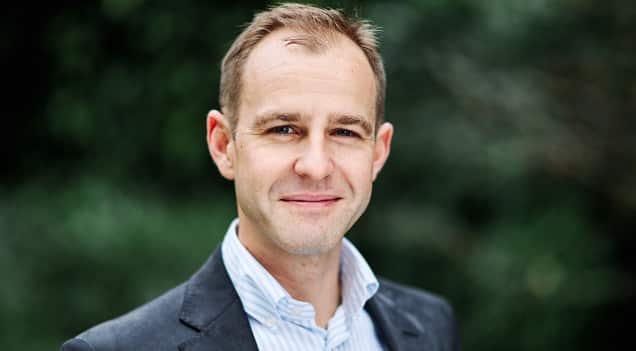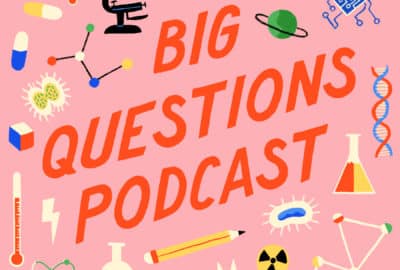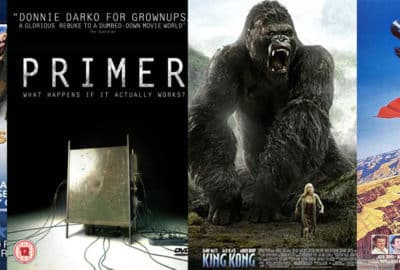Are video games good for my mental health?
Wednesday 6th Jan 2021, 11.43am
Most of us have probably heard of video games being described as “addictive”, but is there evidence of this? Are they damaging to our mental health, or could they actually have a positive impact on our metal wellbeing? In this episode of the Big Questions podcast we’re booting up our consoles, and asking Prof Andrew Przybylski, Director of Research at the Oxford Internet Institute, all about his latest study (fans of Animal Crossing and Plants vs. Zombies – this one’s for you!).
Emily Elias: Video games, they’ve come a long way from a giant monkey kidnapping a woman with the help of some ladders, and in this pando, they have become a valuable companion. On this episode of the Oxford Sparks Big Questions podcast, we are booting up our consoles and we are asking are video games good for my mental health?
Oh, hello there. I’m Emily Elias, and this is the show where we seek out the brightest minds at the University of Oxford and ask them the big questions, and for this one, we’ve got a Zoom date with a video game aficionado.
Andrew Przybylski: My name is Professor Andy Przybylski. I’m an experimental psychologist and I’m director of research at the Oxford Internet Institute. This is the social sciences department at the University of Oxford.
Emily: And Andy loves video games.
Andrew: I have played video games for most of my life. I started around six or seven, and I’m now closing my third decade of life. So, yes, I think I could be fairly described as enjoying video games by this point.
Emily: But it’s not just playing them. Andy is in the business of studying them, and while that sounds super cool for the old CV, it is in fact a very tricky job.
Andrew: The study of video games and other forms of digital technology, it’s been quite a rollercoaster in the last three or four decades, and it’s been actually much more exciting in the last couple of years.
Emily: And while big video game does collect a lot of data, they aren’t really super keen to just hand out to researchers for them to look at.
Andrew: In a way, the kinds of research that we’re doing now probably should have been done 10 or 20 years ago, which is to say, you know, if you’re interested in a phenomena like video gameplay, you should probably have objective data on it. You shouldn’t just be asking people for their opinion of how much time they’ve spent or what they’ve played.
Yes, it was pretty hard to get data out of companies to get them on-board with open science and sharing their data with the world, in case, you know, the results looked embarrassing. But I think that they’re really in a place now where they understand that if they’re going to be one of the most popular forms of recreation on the planet, they should help us understand human play.
Emily: Why do you think it is that they’ve been so resistant to sharing their information? Is it just that, sort of, level of corporate secret or is it more than that?
Andrew: I think that a lot of the will and the energy that we’re seeing now around conducting open science between Oxford and some of these companies is really a reaction to bodies like the World Health Organisation and the American Psychiatric Association, basically overnight deciding that video games might be addictive. So, in a way that the games companies didn’t have to face with, you know, really silly accusations about aggression or satanism.
You know, these kinds of health concerns really do raise the stakes, and I think for the first time, it became pretty clear to people inside the games industry that responsible, thoughtful, mature research is needed if we’re going to be making health policy decisions that would not just impact industry, but impact health regulation and health priorities globally.
Emily: And so Andy has been on a journey to get data from big video games, and clearly, it’s not like you can just punch through a levitating block and get some info. Instead, he’s had to go about it the hard way, building trust.
Andrew: It involved the process of having conversations about, you know, what does the scientific literature look like, what are the priorities for the area, and then what are the levels of control a company can give up? How would their players see and trust that now, in some way, some of them are participants in scientific research.
So, that meant, on one level, talking about ethics and legal considerations. On another level, it meant talking about our values, both scientific and in terms of doing right by participants or players, and then it had a real practical dimension to it, trying to figure out how to get academic data scientists and industry data scientists to, you know, figure out how the hell do we get data from Point A to Point B and how do we protect the results against any kind of manipulation.
Emily: With this pandemic in full swing, people, well they’re turning to consoles and apps now more than ever, and Andy wanted to know what impact that’s having on our mental health. So, he managed to land some pretty big datasets from two huge games that have kept us company these past few months. The first is from Nintendo’s ‘Animal Crossing New Horizons’.
Andrew: We’re simulating life and simulating an island where you, kind of, decorate things and build things.
Emily: And EA’s ‘Plants vs. Zombies’.
[Start of clip from game]
Male: Since the dawn of time, war has raged between the plants and the zombies. You must be-
Male: Yeah, we get it.
[End of audio clip from game]
Andrew: It’s actually a third-person cartoony shooter game where you’re playing with your friends to battle comically rendered undead.
They’re both wonderful, silly, what you could call casual video games. So, you know, they’re the kind of game that you can’t really play them without other people, or other people are pretty important to them.
Emily: So, Andy wanted his study to look at a few things. He wanted to survey the players for their wellbeing, their motivations and their general satisfaction during play, and then he merged their responses with the logged gameplay data.
Andrew: At the end of the day, we had just over 3,000 participants, and most of those participants came from Animal Crossing.
Emily: How did you feel when you started opening it up?
Andrew: We were partially relieved when we looked at the data, especially from ‘Animal Crossing’, because one of the really important things to social scientists is something called response rates. This is, you know, how many people do you contact, how many actually respond and how many, kind of, participate in the study.
We had reason to believe that the response rates were actually going to be particularly low, based on some pilot work that we did. So, we were just, you know, simply relieved when the numbers were in the hundreds and in the thousands because we were quite worried that not contacting participants as academics, not contacting participants, you know, with the University of Oxford crest, but contacting them via the games companies, that maybe that, kind of, credibility wouldn’t help us get the kinds of data that we needed.
Emily: So, what did you find?
Andrew: It was a very simple study. So, it was a correlational study, one timepoint. We found a very small, but statistically significant link between playing both of these games and mental wellbeing. So, how people said they felt in terms of their positive and negative emotional experiences. We found that when people had rewarding social experiences in games, that was even much more strongly correlated with how they said they felt.
I don’t think that this will necessarily surprise anyone in the audience to hear, but these were interesting to see, because 30 years of research on video games has just been based on all self-reports. We haven’t actually known how long people actually objectively spend playing games, and so this kind of template is important for the future.
Emily: So, in non-science speak, did you find out that video games are good for me?
Andrew: Oh my God, no. So, we found that people who actually play more video games are more likely to say that they feel happy. It’s entirely possible that happier people or people who have been happier in the last two weeks, they just have more time in their lives to play ‘Animal Crossing’ and ‘Plants vs. Zombies’. It’s a correlation, and, you know, correlation does not equal causation here.
So, we’re doing the kinds of studies right now where we follow the same players over time and look at what happens when you increase or decrease your video gameplay, how that impacts changes in your health and wellbeing, but yes. No, we’re quite a far way away from me saying that we should prescribe video games or something silly like that.
Emily: Remember, kids, causation and correlation, two different things. So, you can’t go and declare, “Mum, Dad, you don’t understand. Video games are good for me,” but this whole study is still really important because it proves that scientists and big video game companies can in fact play nice, and Andy hopes that they’ll be able to take this relationship to the next level.
Andrew: The future of collaborations like this are going to be characterised by three things. I think the studies are going to be very large-scale studies. So, they’re going to involve thousands or millions of players over long periods of time. I think that they’re going to be open science studies. So, they’re going to be studies where you might have different opinions about what the data means, but everyone’s going to be looking at the same data. So, the data’s going to be widely shared, and these are going to be collaborative projects.
So, this isn’t going to be, like, a smash-and-grab. Academics aren’t going to show up at Nintendo and smash the windows and just, you know, pull out a bunch of floppy disks. This is going to have to be a large-scale collaboration. You know, you could think of it a bit like CERN or any of the other large particle accelerators, and it just happens to be that scientists will share time on these kind of engines of big data.
Emily: And video game researchers everywhere will be able to understand the value of digital playtime.
This podcast was brought to you by Oxford Sparks from the University of Oxford, with music by John Lyons and additional music from Game Lab, and a special thanks to Professor Andy Przybylski.
Tell us what you think about this podcast. We are on the internet at Oxford Sparks, Facebook, Twitter, YouTube, you name it, we’ve got, we’re there, plus we’ve got a website, oxfordsparks.ox.ac.uk. I’m Emily Elias. Bye for now.




